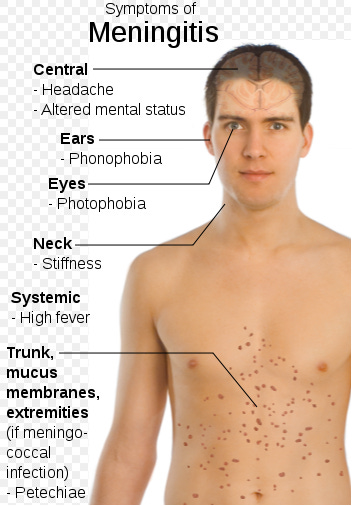CDC issues health advisory over rise in invasive meningococcal disease
Mainly attributable to Neisseria meningitidis serogroup Y
On Thursday, the Centers for Disease Control and Prevention (CDC) issued a health advisory due to an increase in invasive meningococcal disease.
The increase is mostly due Neisseria meningitidis serogroup Y.
According to CDC, in 2023, 422 cases were reported in the United States, the highest annual number of cases reported since 2014. As of March 25, 2024, 143 cases have been reported to CDC for the current calendar year, an increase of 62 cases over the 81 reported as of this date in 2023.
A specific meningococcal strain, sequence type (ST) 1466, is responsible for most (101 of 148, 68%) serogroup Y cases with available sequence type data that were reported across the United States in 2023.
Of 94 patients with known outcomes, 17 (18%) died; this case-fatality rate is higher than the historical case-fatality rate of 11% reported for serogroup Y cases in 2017–2021.
Meningitis (Deadly Diseases & Epidemics)
Meningococcal disease, caused by the bacterium Neisseria meningitidis, is a rare but severe illness with a case-fatality rate of 10–15% even with appropriate antibiotic treatment. Meningococcal disease most often presents as meningitis, with symptoms that may include fever, headache, stiff neck, nausea, vomiting, photophobia, or altered mental status; or as meningococcal bloodstream infection, with symptoms that may include fever and chills, fatigue, vomiting, cold hands and feet, severe aches and pains, rapid breathing, diarrhea, or, in later stages, a dark purple rash. While initial symptoms of meningococcal disease can at first be non-specific, they worsen rapidly, and the disease can become life-threatening within hours. Immediate antibiotic treatment for meningococcal disease is critical. Survivors may experience long-term effects such as deafness or amputations of the extremities.
Subscribe to Outbreak News TV on YouTube
Of the six N. meningitidis serogroups — A, B, C, W, X, and Y — responsible for most meningococcal disease worldwide, the four serogroups B, C, W, and Y circulate in the United States. Vaccines against serogroups A, C, W, Y (MenACWY) and serogroup B (MenB) are available in the United States.
Recommendations for the Public
Seek medical attention immediately if you or your child develops symptoms of meningococcal disease:
Symptoms of meningitis may include fever, headache, stiff neck, nausea, vomiting, photophobia, or altered mental status.
Symptoms of meningococcal bloodstream infection may include fever and chills, fatigue, vomiting, cold hands and feet, severe aches and pains, rapid breathing, diarrhea, or, in later stages, a dark purple rash.
While symptoms of meningococcal disease can at first be nonspecific, they worsen rapidly, and the disease can become life-threatening within hours.
Talk to your healthcare provider about meningococcal vaccines that may be recommended for you and your household or family members, including any recommended booster doses.





